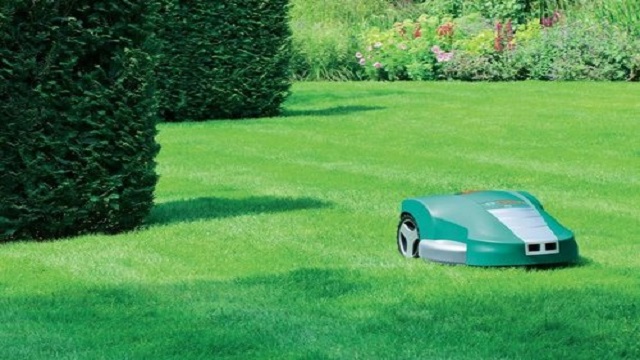Telit, a global enabler of the Internet of Things (IoT), announced that Husqvarna is using a wireless sensor device co-developed by Telit and Wireless System Integration (WSI), an award-winning Sweden-based design house developing wireless products and systems, in their city robotic mower pilot program. Cities are using the Husqvarna mowers to collect data about the environment, the quality of air, water, and levels of light and sound, while maintaining the cities’ green spaces, saving time and money, reducing emission and noise pollution.
The mowers cut the grass daily, within a boundary wire, rain or shine, keeping the grass cut and collecting data 24 hours a day from the sensors. The sensors collect real-time data on UV radiation, air quality, ambient noise, luminosity and vibration. The sensor box, designed by Telit, is a first for the industry. The sensor box mounted on top of the mowers, uses the robots’ main battery for power supply, thereby recharging whenever the robot returns to its base. The sensor box transmits the data using Telit’s HE910 cellular module and Telit’s global IoT connectivity data plans (MVNO). The Telit IoT Platform seamlessly connects, manages and delivers the environmental data in a ready-to-use format. In cooperation with Husqvarna, Quantified Planet, an organization that links innovation to science, receives the data and publishes it for citizens to review. The cities can then analyze the environmental data sent by the robots and implement programs to improve the health of its citizens, based on these insights.
“Collecting this city data gives researchers the opportunity to explore and research the health of urban public spaces in a way that has never been done before. By using the Quantified Planet data exploration platform, this new data can provide insights and innovation on how to develop and improve sustainable open green spaces which impact the citizens living nearby. We are excited to be part of the project,” said Maja Brisvall, CEO, Quantified Planet.
“The need for green spaces is growing more and more in urban areas, and it is inspiring to think about how parks in cities will be maintained in the future. I am excited about the pilot program, learning more about the possibility to increase sustainability and productivity in professional landscaping for urban areas,” said Pavel Hajman, President of the Husqvarna Division.
“According to the United Nations, 66 percent of the world’s population will be living in urban areas by 2050, creating sustainability challenges for cities to manage. Cities that are already using IoT are building the infrastructure to manage their assets and relationships with their citizens,” said Yosi Fait, Interim CEO, Telit. “Husqvarna’s city mower program is an example of how cities are using IoT to become more sustainable and efficient. Through this collaboration we have been demonstrating again our unique sensor to cloud capabilities, cutting our customers time to market through our integrated lines of products and services as well through our professional services team’s significant IoT knowhow.”







